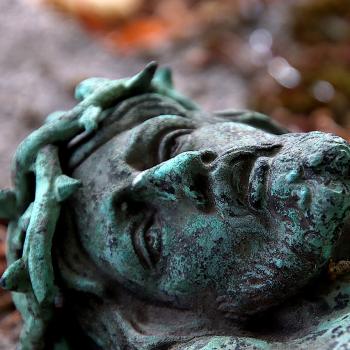
Since 2015, the Reverend Livingstone Thompson, PhD, has been in charge of two Northern Ireland Moravian congregations: University Road, Belfast, and Kilwarlin, County Down.
With Livingstone’s years of experience in two very disparate settings – one (University Road) urban, and the other (Kilwarlin) rural – he was an ideal interviewee for this piece, where we consider ministry from both urban and rural perspectives. Beyond ordained ministry, Thompson is interested in Diversity, Equity, and Inclusion (DEI); and he chairs the Northern Ireland Racial Equality Subgroup.
What is ministry like in a city such as Belfast, with a population – roughly the same as that of Orlando, Pittsburgh or Cincinnati, for my readers in the States – of over three hundred thousand?
“In the urban setting,” notes Livingstone, “you have a plethora of other agencies and organizations who are not religious but who, by the kind of things that they’re focused on, share some of the same concerns. Broadly, these concerns all have to do with social justice.”
"One of these things would be dealing with homelessness as a reality,” Thompson continues. “While some help is possible, homelessness is one area where the Church, in its urban guise, is faced with limitations as to what it is able to do. We do not have the means to offer shelter; and so we refer individuals, about whom we care, to welcome centers; or the city council; or the Salvation Army,” who can help with longer-term support when called upon.
It's a similar story when it comes to drugs and those who suffer from addiction.
“Churches, in general,” Thompson acknowledges, “do not have the competence to manage either the collection of drug paraphernalia or to treat individuals who may have some drug abuse.”
Rather, he would alert Belfast City Council to concerns about paraphernalia – particularly discarded needles, which can spread infection – and signpost addiction sufferers to health agencies.
Where the Church can make a big impact, in tandem with other charities, is with regards to food poverty.
When there is an appeal for donations in University Road, “within a month,” estimates Livingstone, “we can amass sixty kilograms of food; and we give that to the food bank.”
Based on Food and Agriculture Organization figures (an average person eats 1.85kg daily), that’s more than enough to keep someone fed for a whole month.
Our conversation then turns to the rhythms of rural ministry.
“The kind of challenges we have for rural ministry have a lot to do with population stability,” Thompson explains, “because you’re inclined to have movement out of the area.”
Much depends on social forces, like rural flight, which are beyond any preacher’s control. As a consequence, demand for young people’s activities in Kilwarlin waxes and wanes.
“Being able to sustain a youth ministry is a much more challenging prospect in the rural area than it would be in the urban area,” Livingstone tells me.
“We have young people coming up,” he relates, “and as soon as they reach a certain level of maturity they are out of the area; so we have a real sine wave [a series of peaks and troughs] of youth work.”
With a situation as changeable as this, one can imagine how hard it is for a small congregation in a rural environment, such as Kilwarlin, to make any long-term plans or commitments around youth outreach.
“The question of financial stability and streams of income,” Thompson goes on, “is another critical area.’”
Those outside rural ministry may not realize – I didn’t, until this conversation – that churches located in the countryside are, for heritage reasons, better placed to apply for financial packages than a lot of urban ones. Many rural churches benefit, for instance, from the UK’s National Lottery Heritage Fund.
“We just received a grant of £80,000,” reports Livingstone, “for some development work,” a project which will enhance the facilities at Kilwarlin.
If collaboration with civic agencies to further the cause of social justice is an integral part of urban ministry, “connections with other churches,” according to Thompson, are more important in a rural context.
Indeed, I first became aware of Livingstone when my priest, incumbent in the local Anglican parish, received an invitation from him to preach in Kilwarlin!
What unites urban and rural churches, Thompson points out, is membership decline. Different reasons, he finds, are to blame for the drop-off in church attendance, when he compares the two scenarios.
“In the urban setting,” observes Livingstone, “there is a stronger indication of the drift away from the churches.”
Religion seems to have lost its foothold in our cities.
“In the rural setting there is slower growth, numerically, because the population is not looming and booming,” runs Thompson’s analysis.
Even with such a challenging state of play for the Church, urban and rural communities both deserve to have an active Christian presence.
With clerical numbers in decline, a vocation which might, a generation ago, have seen clergy tasked with either an urban or a rural incumbency – but seldom the two, concurrently – may find themselves, like Livingstone, entrusted with both.
Perhaps the paragraph above shows a certain Anglican bias!
“Because of the size of the Moravian Church,” Thompson reminds me, “it was always the case that ministers would be inclined to be involved in both urban and rural settings.”
He cites his ministry colleague, the Reverend Jared Stephens, who looks after Cliftonville Moravian (urban) and Ballinderry Moravian (rural), as another example of a minister with two congregations, where day-to-day life is different.
Ultimately, the simple reality that church exists in both urban and rural settings is evidence in itself that God cares for people of all backgrounds.
Our Lord was from Nazareth, a semi-rural town; his Apostle, St Paul, preached in great cities like Antioch and Athens. Ministry may differ in its outward form; but – as Christians who worship one God, the Father of us all – our common faith overcomes all the cultural, geographical and social barriers which might come between us.
2/7/2024 1:21:32 AM





